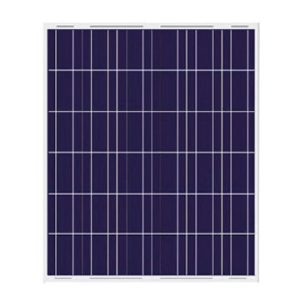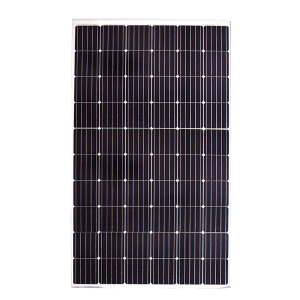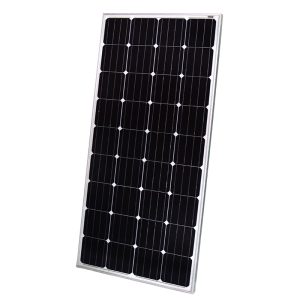In an era where renewable energy is not just a buzzword but a global imperative, solar panels have moved from the fringes to the mainstream. Among the plethora of options available, the Bosch 245 Watt Solar Panel stands out as a blend of efficiency, durability, and affordability. This article aims to offer an in-depth look at this solar panel, dissecting its features, technical specifications, and real-world performance to help you make an informed decision.
The Bosch Legacy: A Century of Engineering Excellence
When one thinks of renewable energy solutions, Bosch is a name that invariably comes to mind. With roots tracing back to 1886, Bosch has been a beacon of engineering excellence for over a century. But it’s not just the longevity that sets them apart; it’s their unwavering commitment to innovation and quality, especially in the realm of sustainable energy.
Bosch has invested billions in research and development, ensuring they stay ahead of the curve in a rapidly evolving industry. Their solar solutions are not just products but a testament to their engineering prowess. From the drawing board to the manufacturing line, every Bosch solar panel is a marvel of design and functionality, built to last and perform at peak efficiency for years. This makes them a reliable choice for anyone looking to make a long-term investment in solar energy.
Key Features: More Than Just Numbers
The Bosch 245 Watt Solar Panel is a product that speaks volumes through its performance. It’s not just a solar panel; it’s a statement of what efficiency and reliability should look like in the renewable energy sector. Let’s dissect its key features to understand why it stands out:
STC Power Rating of 245W: Robust Performance Guaranteed
When it comes to solar panels, the Standard Test Conditions (STC) Power Rating is a critical metric. With a rating of 245W, this panel ensures robust performance even when the sun isn’t shining at its brightest. This is particularly beneficial for regions with fluctuating weather conditions, ensuring that your energy yield remains consistent.
Peak Efficiency of 14.91%: Competitive Yield
While a peak efficiency of 14.91% may not make headlines, it’s a figure that holds its own in a crowded market. What this means for the average homeowner is simple: you get a good yield for your investment. In layman’s terms, your panel will convert a significant portion of the sunlight it receives into usable electricity, making it a cost-effective choice in the long run.
Power Tolerances of 0%/+3%: Consistency is Key
One of the most overlooked aspects of a solar panel is its power tolerance. The Bosch 245 Watt Solar Panel comes with a power tolerance of 0%/+3%, ensuring that the panel’s output will always stay within this range. This is crucial for system planning and guarantees that you won’t experience significant fluctuations in energy output, providing peace of mind and reliability.
60 Monocrystalline Silicon Cells: The Backbone of Efficiency
The panel features 60 monocrystalline silicon cells, known for their high efficiency in converting sunlight to electricity. These cells are the backbone of the panel, ensuring minimal energy loss during the conversion process. Monocrystalline cells are also more durable and have a longer lifespan compared to their polycrystalline counterparts, adding another layer of reliability to this already impressive panel.
Technical Specifications: The Devil is in the Details
While features provide a panoramic view of what the Bosch 245 Watt Solar Panel offers, the technical specifications zoom in to reveal the intricate details that make this panel a standout choice.
Nominal Voltage: The Flexibility Factor
The term “Nominal Voltage” often appears in solar panel specifications, but in the case of this Bosch panel, it’s marked as “Not Applicable.” This is not an oversight; it’s a feature. The absence of a fixed nominal voltage offers unparalleled flexibility in system design, allowing for a wider range of configurations and applications. Whether you’re setting up a small rooftop system or a large-scale solar farm, this flexibility can be a significant advantage.
Imp of 8.14A and Vmp of 30.11V: The Electrical Symbiosis
The Imp (Current at Maximum Power) of 8.14A and Vmp (Voltage at Maximum Power) of 30.11V are not just numbers; they’re indicators of how well the panel performs under standard test conditions. These figures ensure that the panel operates at optimal efficiency, maximizing the energy yield and, by extension, your return on investment.
Temperature Coefficients: Built for the Heat
With a Nominal Operating Cell Temperature (NOCT) of 48.4°C and minimal temperature coefficients, this panel is engineered to withstand high-temperature conditions. This is particularly beneficial for installations in hot climates, where lesser panels might suffer from efficiency losses. The Bosch 245 Watt Solar Panel maintains its performance, ensuring that your energy yield remains consistent, irrespective of the mercury rising.
Installation and Usability: User-Friendly by Design
Installing a solar panel can be daunting, but not with the Bosch 245 Watt Solar Panel. Thanks to its Rack-Mounted Installation Method and Multicontact Connector Type 4, even those who shy away from DIY projects will find the installation process to be straightforward. The panel comes with a detailed installation guide, and the connectors are designed for quick and secure fitting, making the entire process painless and quick.
Warranty and Certifications: A Long-Term Commitment
Investing in a solar panel is not a short-term affair; it’s a long-term commitment. Bosch understands this and offers an 80% Power Output Warranty for 25 years and a 90% Power Output Warranty for 10 years. These warranties ensure that your panel will continue to perform at a high level for decades, offering peace of mind and financial benefits in the long run. Moreover, the panel comes with certifications like UL 1703 and IEC 61730, adding another layer of reliability to your investment.
Conclusion
The Bosch 245 Watt Solar Panel offers a compelling mix of efficiency, durability, and affordability. Whether you’re a homeowner looking to cut down on electricity bills or a business aiming for sustainability, this panel is a worthy investment.



